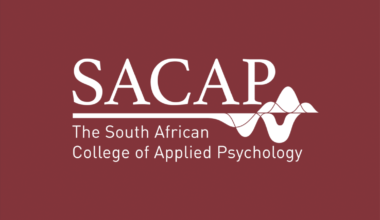The demand for postsecondary education in South Africa increases annually. Tshwane University of Technology (TUT) is one of the most coveted universities in the nation.
TUT offers a variety of courses for individuals with a high school certificate who meet the institute’s admission requirements.
Choosing among the many TUT courses in South Africa can be pretty challenging. That is why, with the help of resource professionals, we have listed the top 10 TUT courses you can apply for that cover different fields.
Our article will also help you understand everything you need to know about TUT courses in South Africa, the cost and tuition fee for these courses, and more.
Table of contents
- About TUT South Africa
- What are the Requirements for TUT?
- Best 15 TUT Courses in South Africa
- 1. Bachelor of Information Technology
- 2. Bachelor of Engineering Technology in Civil Engineering
- 3. National Diploma in Electrical Engineering
- 4. Bachelor of Nursing Science
- 5. Bachelor of Education in Senior Phase and FET
- 6. Bachelor of Arts in Journalism
- 7. Bachelor of Public Relations Management
- 8. Bachelor of Accounting
- 9. Diploma in Hospitality Management
- 10. Bachelor of Sports Management
- 11. National Diploma in Mechanical Engineering
- 12. Bachelor of Fashion Design
- 13. Diploma in Biotechnology
- 14. Bachelor of Environmental Health
- 15. National Diploma in Marketing
- List of Tshwane University of Technology courses
- How much is the application fee for TUT 2025?
- How much is the registration fee at TUT 2025?
- Does TUT Accept Late Applications?
- What Documents does TUT want?
- What can I Study at TUT with 20 points?
- What are the Benefits of Studying at TUT?
- Frequently Asked Questions
- Conclusion
- References
- Read Also
About TUT South Africa
A combination of three Technikons—Technikon Northern Gauteng, Technikon North-West, and Technikon Pretoria—created the Tshwane University of Technology, a South African university.
Records indicate that Tshwane University of Technology serves over 60,000 students and has become the largest residential higher education institution in South Africa due to the fast annual growth in the number of students enrolling.
The university has nine campuses: Pretoria main campus, Arcadia campus, Arts campus, Soshanguve south and north campus, Ga-Rankuwa campus, Witbank (eMalahleni campus), Mbombela (Nelspruit), and Polokwane.
Two colleges, the science and arts faculties, have specialized campuses in the heart of Pretoria.
Read Also: 13 of the Most Haunted Colleges in USA
What are the Requirements for TUT?
Applicants for a first-year diploma should obtain NQL level 3 in at least four topics, while those pursuing a bachelor’s degree must obtain NQL level 4 in at least four subjects.
Best 15 TUT Courses in South Africa
TUT offers many courses that cover different fields. Below are the 15 best courses to enrol for at TUT.
1. Bachelor of Information Technology
The Bachelor of Information Technology at TUT offers a comprehensive curriculum covering various IT aspects, including software development, data management, networking, and cybersecurity.
Students receive hands-on training in coding languages, systems analysis, and cloud computing, preparing them to meet the demands of the ever-evolving tech industry.
Career Prospects: Graduates can pursue careers as software developers, network administrators, IT consultants, and data analysts. With the growing demand for tech skills globally, this course stands out among TUT courses in South Africa.
Fee Structure:
- Approximate yearly tuition fee: ZAR 35,000 – ZAR 42,000.
- Additional costs for textbooks and materials: ZAR 3,500 – ZAR 5,000.
2. Bachelor of Engineering Technology in Civil Engineering
The Bachelor of Engineering Technology in Civil Engineering at TUT focuses on the principles and practical applications of civil engineering. Students learn about infrastructure development, structural analysis, construction management, and environmental engineering.
The course emphasizes problem-solving skills and technical expertise required for large-scale projects.
Career Prospects: Graduates are equipped for careers as civil engineers, construction managers, and infrastructure planners. This course is highly regarded among TUT courses in South Africa due to its alignment with industry needs.
Fee Structure:
- Approximate yearly tuition fee: ZAR 40,000 – ZAR 48,000.
- Additional costs for laboratory fees and materials: ZAR 5,000 – ZAR 7,500.
Read Also: Pros And Cons Of Paying Off Student Loans Early
3. National Diploma in Electrical Engineering
TUT’s National Diploma in Electrical Engineering offers specialized electrical systems, electronics, and telecommunications training.
Students gain practical experience through laboratory work and industry placements, learning to design and maintain complex electrical systems.
Career Prospects: Graduates can work as electrical engineers, systems technicians, or power systems analysts. This diploma is one of the most sought-after TUT courses in South Africa due to the critical demand for electrical expertise.
Fee Structure:
- Approximate yearly tuition fee: ZAR 30,000 – ZAR 37,000.
- Additional costs for equipment and materials: ZAR 2,500 – ZAR 4,000.
4. Bachelor of Nursing Science
The Bachelor of Nursing Science at TUT provides students with extensive training in healthcare, patient management, and clinical skills.
The program combines theoretical coursework with practical hospital placements, preparing students for diverse roles in the medical field. It covers areas such as anatomy, pharmacology, and community healthcare.
Career Prospects: Graduates can pursue careers as registered nurses, clinical nurse specialists, or healthcare administrators. With the growing need for healthcare professionals, this course is among the most reputable TUT courses in South Africa.
Fee Structure:
- Approximate yearly tuition fee: ZAR 32,000 – ZAR 39,000.
- Additional uniforms, clinical equipment, and materials costs: ZAR 2,000 – ZAR 4,000.
5. Bachelor of Education in Senior Phase and FET
The Bachelor of Education in Senior Phase and FET at TUT is designed to prepare students for teaching roles in high schools. The course focuses on pedagogical theories, curriculum design, classroom management, and subject-specific training. Graduates are equipped to teach learners in Grades 7 to 12.
Career Prospects: Graduates can become high school teachers, curriculum developers, or educational consultants. This degree is one of the best education-focused TUT courses in South Africa, and there is a high demand for qualified teachers.
Fee Structure:
- Approximate yearly tuition fee: ZAR 28,000 – ZAR 34,000.
- Additional costs for teaching materials and placements: ZAR 2,000 – ZAR 3,000.
6. Bachelor of Arts in Journalism
The Bachelor of Arts in Journalism at TUT offers a modern approach to journalism, focusing on multimedia reporting, digital content creation, and investigative journalism. Students learn critical writing, broadcasting, and video editing skills, making them versatile in the fast-changing media landscape.
Career Prospects: Graduates can pursue careers as journalists, media strategists, or digital content creators. This course is well-regarded among TUT courses in South Africa due to its emphasis on practical media experience.
Fee Structure:
- Approximate yearly tuition fee: ZAR 30,000 – ZAR 36,000.
- Additional costs for media equipment and software: ZAR 3,000 – ZAR 5,000
Read Also: What To Do When Student Loan Account Is Closed Due To Transfer
7. Bachelor of Public Relations Management
The Bachelor of Public Relations Management at TUT equips students with communication strategy, brand management, crisis communication, and corporate reputation management skills. Students gain practical experience through industry placements and simulated public relations scenarios.
Career Prospects: Graduates can work as public relations officers, corporate communications managers, or brand consultants. This is one of the top public relations TUT courses in South Africa, producing graduates who excel in communication roles.
Fee Structure:
- Approximate yearly tuition fee: ZAR 31,000 – ZAR 38,000.
- Additional costs for event planning materials and case study analysis: ZAR 2,500 – ZAR 4,000.
8. Bachelor of Accounting
The Bachelor of Accounting at TUT provides a solid foundation in financial accounting, auditing, taxation, and management accounting.
Students gain critical skills in financial reporting, tax law, and audit procedures, preparing them for roles in various sectors, including corporate finance, public accounting, and auditing firms.
Career Prospects: Graduates can pursue careers as accountants, auditors, tax consultants, or financial analysts. This course is highly respected among TUT courses in South Africa due to its focus on industry-relevant skills and high employability.
Fee Structure:
- Approximate yearly tuition fee: ZAR 35,000 – ZAR 42,000.
- Additional costs for textbooks and professional exam preparation materials: ZAR 3,500 – ZAR 5,000.
9. Diploma in Hospitality Management
The Diploma in Hospitality Management at TUT offers a comprehensive understanding of the hospitality industry. It focuses on hotel management, food and beverage services, and event planning. Students receive hands-on training in customer service, operations management, and tourism.
Career Prospects: Graduates can work as hotel managers, event coordinators, restaurant managers, or tourism operators. This diploma is one of the most practical and industry-oriented TUT courses in South Africa, catering to the fast-growing hospitality and tourism sectors.
Fee Structure:
- Approximate yearly tuition fee: ZAR 28,000 – ZAR 35,000.
- Additional costs for practical placements and uniforms: ZAR 2,500 – ZAR 4,500.
Read Also: What is an Undergraduate Degree? Meaning, Requirements, Costs, and Best Schools
10. Bachelor of Sports Management
The Bachelor of Sports Management at TUT equips students with the skills to manage sports organizations, events, and marketing campaigns. The program covers sports law, event management, and marketing, blending business and sports knowledge.
Career Prospects: Graduates can pursue roles as sports managers, event planners, fitness center managers, or sports marketers. This course is popular among TUT courses in South Africa, particularly for those passionate about working in the sports industry.
Fee Structure:
- Approximate yearly tuition fee: ZAR 30,000 – ZAR 38,000.
- Additional costs for sports equipment and industry placements: ZAR 2,000 – ZAR 3,500.
11. National Diploma in Mechanical Engineering
The National Diploma in Mechanical Engineering at TUT provides students with the essential skills and knowledge in mechanical systems, machine design, and industrial automation. The program emphasizes laboratory practical work, enabling students to design, analyze, and optimize mechanical systems in real-world applications.
Career Prospects: Graduates can pursue careers as mechanical engineers, design engineers, or industrial consultants. This diploma is among the most practical TUT courses in South Africa, providing a strong foundation for engineering roles in various industries.
Fee Structure:
- Approximate yearly tuition fee: ZAR 32,000 – ZAR 40,000.
- Additional laboratory fees and engineering materials costs: ZAR 3,000 – ZAR 5,000.
12. Bachelor of Fashion Design
The Bachelor of Fashion Design at TUT is designed for students passionate about fashion. It offers courses in fashion trends, design techniques, and garment production. Students gain hands-on experience in pattern making, textile design, and fashion illustration, preparing them for the dynamic and creative fashion industry.
Career Prospects: Graduates can work as fashion designers, brand consultants, or retail buyers. This course stands out among TUT courses in South Africa, particularly for those looking to enter the fashion industry with a strong design and entrepreneurial skill set.
Fee Structure:
- Approximate yearly tuition fee: ZAR 28,000 – ZAR 36,000.
- Additional sewing equipment, fabric, and materials costs: ZAR 4,000 – ZAR 6,000.
13. Diploma in Biotechnology
The Diploma in Biotechnology at TUT focuses on applying biological and technological processes to the pharmaceutical, agriculture, and environmental management industries.
The course covers genetic engineering, molecular biology, and microbiology, providing students with theoretical and practical knowledge.
Career Prospects: Graduates can work as biotechnologists, lab technicians, or research scientists in healthcare, environmental conservation, and food production. This diploma is highly regarded among TUT courses in South Africa due to its relevance in today’s science-driven economy.
Fee Structure:
- Approximate yearly tuition fee: ZAR 33,000 – ZAR 40,000.
- Additional laboratory fees and scientific materials costs: ZAR 3,500 – ZAR 5,000.
Read Also: Is an Open University Degree Valid for Employment?
14. Bachelor of Environmental Health
The Bachelor of Environmental Health at TUT focuses on promoting public health by addressing environmental hazards. The program covers waste management, pollution control, food safety, and occupational health.
Students gain practical experience through fieldwork and laboratory exercises, learning to assess and manage risks in communities and workplaces.
Career Prospects: Graduates can work as environmental health officers, public health inspectors, or policy advisors in the governmental and private sectors. Given the growing importance of environmental sustainability, this course is highly relevant among TUT courses in South Africa.
Fee Structure:
- Approximate yearly tuition fee: ZAR 29,000 – ZAR 36,000.
- Additional costs for fieldwork and laboratory materials: ZAR 2,500 – ZAR 4,000.
15. National Diploma in Marketing
The National Diploma in Marketing at TUT prepares students for careers in marketing by providing a strong foundation in consumer behavior, digital marketing, market research, and sales strategy. Students gain practical skills in planning and executing marketing campaigns.
Career Prospects: Graduates can pursue roles as marketing managers, digital marketers, or sales consultants. This diploma is one of the top business-focused TUT courses in South Africa, equipping students with the skills to thrive in the competitive marketing industry.
Fee Structure:
- Approximate yearly tuition fee: ZAR 28,000 – ZAR 34,000.
- Additional marketing projects and case studies costs: ZAR 2,000 – ZAR 3,000.
List of Tshwane University of Technology courses
The Tshwane University of Technology offers numerous courses, and they are all housed under eight (8) faculties listed below:
- Arts & Design
- Economics & Finance
- Engineering & the Built Environment
- Humanities
- ICT
- Management Sciences
- Science
- Distance Education
How much is the application fee for TUT 2025?
For all initial Tshwane University of Technology applicants, a fee of R240 must be paid at the time of application.
How much is the registration fee at TUT 2025?
Self-funded students must make a minimum initial payment of R1 500 before academic registration, as the first instalment of the total tuition fees charged. A compulsory advance payment of R1 200 is required before residence registration.
Does TUT Accept Late Applications?
If there is room, late applications will be taken into consideration.
Read Also: How to Change University Course After Getting Admission
What Documents does TUT want?
Documents Needed for TUT
- Grade 11 Registration and the most recent Grade 12 Results
- Final transcript of current coursework (for students transferring)
- Your ID
- ID of your parent or guardian as proof of address
- The most recent pay slip
Read Also: When Do College Acceptance Letters Arrive? Expert Answer
What can I Study at TUT with 20 points?
- Diploma in Fashion Design and Technology.
- Diploma in Fine and Applied Arts.
- Diploma in Jewellery Design and Manufacture.
- Diploma in Performing Arts.
- Higher Certificate in Construction Engineering.
- Higher Certificate in Electrical Engineering.
- Higher Certificate in Industrial Engineering.
What are the Benefits of Studying at TUT?
TUT provides a comprehensive support system to ensure students thrive in their studies. This includes academic support, technical assistance, and career advice, all accessible online. This robust network ensures students have the resources needed to succeed.
Frequently Asked Questions
You do not have to visit the campus to register. However, if you require assistance during office hours, visit one of the self-help locations (TUT computer labs) on campus. Students must be on campus for classes, and registration opens on the same day as classes.
With 20 points, you can enrol in any of the numerous diploma programs the Tshwane University of Technology offers. Contact the school to find out which courses are offered and the extra prerequisites for admission.
You can monitor the status of your TUT application online.
You must obtain 50% and the mark on the special exams.
Conclusion
TUT offers diverse programs that equip students with practical skills and industry-relevant knowledge. Whether pursuing technology, engineering, healthcare, or business, these top 15 TUT courses in South Africa provide excellent opportunities for personal and professional growth.
With a focus on employability and hands-on learning, TUT ensures its graduates are prepared for the workforce. To advance your career, consider exploring these courses and applying to TUT today to take the next step toward success.
References
- TUT courses available for 2024-2025: complete list with faculties, requirements, https://briefly.co.za
- Tshwane University of Technology – https://www.tut.ac.za/
Read Also
- Full Time Student vs. Part Time: What’s the Difference? Benefits
- Are There Student Loans That go Directly to You? How to get!
- 15+ Easy-to-Learn Careers with the Highest Job Satisfaction in 2025
- 35 College Bathroom Essentials For a Fresh And Functional Space
- 35 Best Archaeology Schools in the World | 2024-2025



